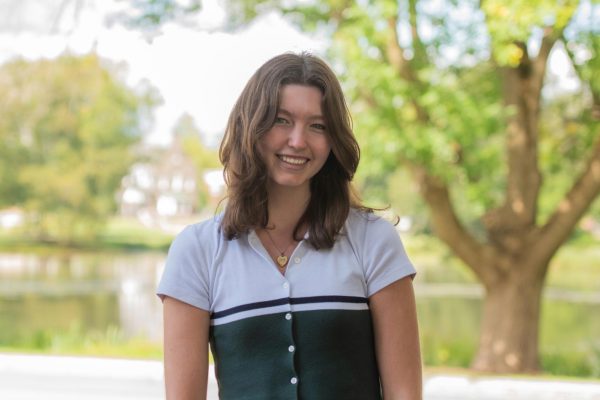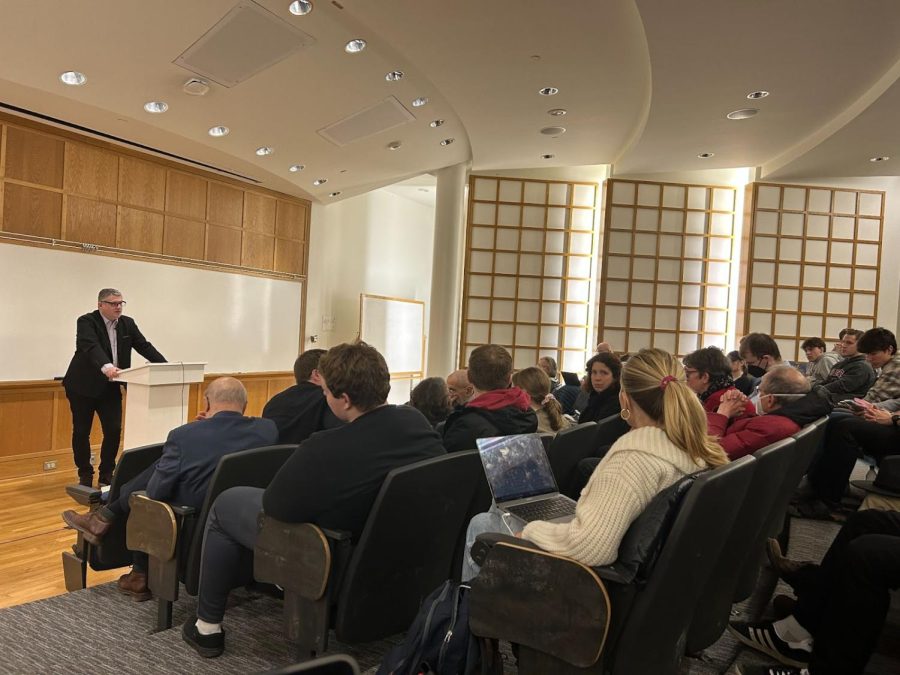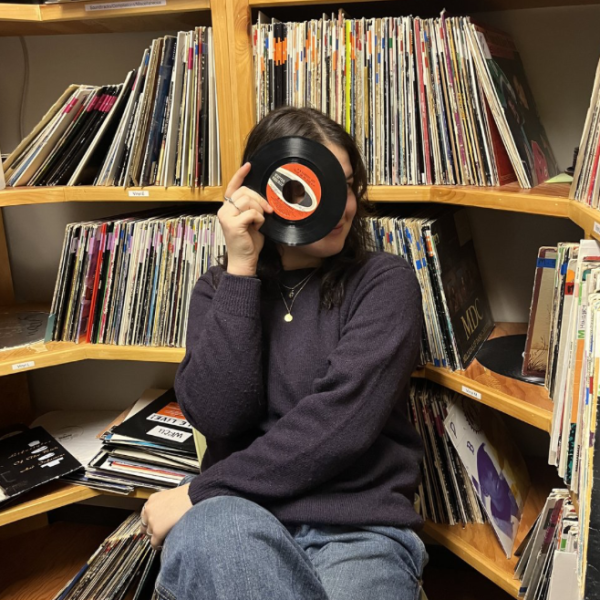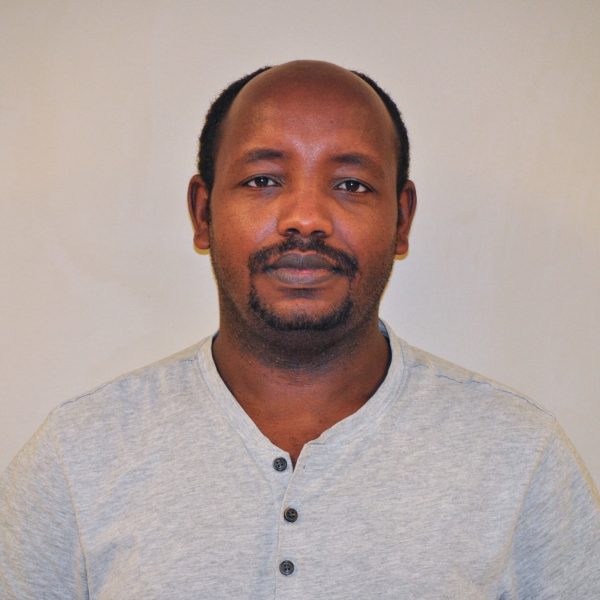Mark Galeotti Returns for Guest Lecture on the War in Ukraine
The Center for Freedom and Western Civilization welcomed political scientist and author Dr. Mark Galeotti to campus for a guest lecture on the war in Ukraine on Wednesday, Feb. 8. The talk, titled “The War in Ukraine: Implications for Russian Power and American Security,” was held at 4:30 p.m. in Persson Auditorium and was followed by a question and answer session allowing for students and faculty to engage with Galeotti.
According to his biography on the website “In Moscow’s Shadows: Analysis and Assessment of Russian Crime and Security,” Galeotti attended Cambridge University and later earned his Ph.D. in Government at the London School of Economics. He has published several novels on Russian affairs, including “We Need to Talk About Putin: How the West Gets Him Wrong” in 2019 and “The Vory: Russia’s Super Mafia” in 2018. He currently teaches as an honorary professor at the UCL School of Slavonic and East European Studies, serves as a senior associate fellow with the Royal United Services Institute and directs the risk consultancy firm Mayak Intelligence.
When introduced to the audience by Robert Kraynak, Professor of Political Science and Director of the Center for Freedom and Western Civilization, Galeotti remarked that he should be titled, “The Man Putin Fears.”
“That’s British humor, he was being ironic about himself,” Kraynak said. “Putin and his entourage banned a whole list of Western journalists and scholars because they don’t think they should be in Russia if they were going to give negative press or even honest assessments of Putin.”
As an expert on Vladimir Putin, Galeotti explained the war in Ukraine through the lens of Putin’s full authority over Russian power, clarifying ways in which the West has misconceived the Russian president’s actions.
“[Putin’s] system has now become a much more conventional old-fashioned dictatorship resting on a throne of bayonets,” Galeotti said. “Putin was fine with Ukrainians running their own country, so long as they realize that when it came down to it, their sovereignty was subordinate to Moscow’s interests— in other words, Moscow had a veto.”
In his talk, Galeotti explained the notion of what it means for Russia to be a great power as well as the implications of Putin’s role in global politics.
“His thesis was that on the one hand, there’s not a lot new here because this resentment at the loss of empire has been seething in Russia for a very long time,” Kraynak said. “He thinks the Russians are going to lose, which doesn’t necessarily mean the Ukrainians are going to win, but that it will be a period of very difficult adjustment to the loss of empire.”
First-year student Lizzy Liao attended the talk and enjoyed Galeotti’s vast knowledge of Russian history and strategy.
“Galeotti pointed out that this war, instead of changing the political landscape, only highlighted certain facts that people refused to acknowledge before. Putin is more like a politician in the 19th century: he thinks Russia is a great power, and by that he believes Russia not only is economically influential but also has the ability to make weaker countries comply,” Liao said. “From Putin’s point of view, Ukraine was never a country. In some way, as Mr. Galeotti argued, the real founding father of Ukraine is Putin. Before him, Ukrainians never shared such strong bonds and ethnic identities.”
Liao reported strong attendance by both students and faculty, especially by students enrolled in the new Benton Scholars course titled “Then and Now: Russia and Ukraine; Courage, Conformity, Atrocity.”
Galeotti previously visited Colgate in 2019 to give the talk titled “Russian Political War with the West: goals and tools.” Kraynak explained that Galeotti and Professor of Russian & Eurasian Studies Alice Nakhimovsky had maintained a correspondence since this previous presentation.
“[Professor Nakhimovsky] and Galeotti go back quite a ways, actually, Galeotti was here three years ago just talking about the rise of Putin, and we thought he was very effective,” Kraynak said. “He’s a world-renowned expert on Russia and security measures.”
Galeotti ended his lecture with a discussion on how the West is approaching the war in Ukraine and its relations with Putin. He believes that the United States and the United Kingdom’s confusion with Putin’s power agenda is indicative of the growth of democracy.
“The fact that we’re surprised by what Putin does says good things about us, about how the world has changed,” Galeotti said.
Galeotti leveraged his extensive research to ultimately argue that he holds an optimistic view of the long-term outcome of Russia. He believes that, despite the eventual political turmoil around Putin’s transfer of authority, the grappling with this loss of empire will one day end. Galeotti routinely posts his thoughts and updates about the war on his Twitter, @MarkGaleotti, and contributes to the following news sites: “Raam op Rusland,” “bne Intellinews” and “Moscow Times”.
This guest lecture was co-sponsored by the Forum on Security and Democracy and the Russian and Eurasian Studies Program.
The Center for Freedom and Western Civilization is hosting several other guest lectures throughout the spring semester which can be found on the center’s online calendar.

Rio Lacey is a junior from San Diego, CA concentrating in economics with a minor in political science. She has previously served as a staff writer for...








